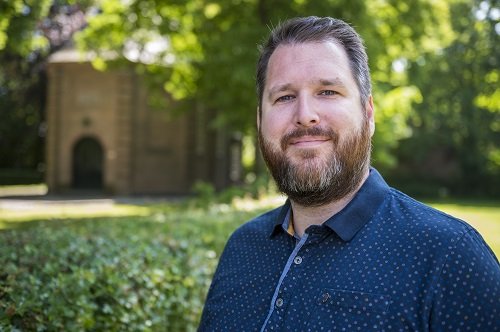Nuenen increasingly dementia-friendly
Everyone wants to grow old, but no one wants to be old. Understandably, because old age comes with shortcomings. Memory deteriorates, exercise becomes more difficult, and sometimes old people become demented. The latter, dementia, is becoming increasingly common. That's why Nuenen is becoming more dementia-friendly. Alderman Niels Wouters explains how this is happening.

The chances of you getting older than your (grand)parents are pretty high. Consider this. In 1973, the average life expectancy of the Dutch was 74.2 years. Now, fifty years later, it is 81.4 years. Result: a growing number of elderly people. More elderly means more demand for Health, Alderman Niels Wouters knows. 'Nuenen has about 24,000 inhabitants. About six hundred Nuenen residents have dementia, ranging from incipient dementia to advanced. By 2050 that number will have doubled. We have to do something about that.'
People with dementia can be confused. Wouters: "They sometimes lose their way, for example. Or they are in the store and have no idea how they got there and why they are there. People with dementia need extra Health . But as a government, we don't have enough capacity to take care of everyone. That is why we are making our village more dementia-friendly, for example by offering support, explanation and promoting fellow-sufferer contact.
Informal caregivers
Many people with dementia are supported by a so-called informal caregiver: the partner, a child, a friend or a volunteer. Wouters: 'Informal caregivers do fantastic work that deserves a lot of appreciation. But make no mistake: being an informal caregiver is quite heavy. If you care for someone day and night, you hardly have any time left for yourself. That is why we support caregivers wherever possible, for example with information through our Center for Social Participation (CMD) or by organizing certain activities. In addition, the municipality awards the informal care award every year as a token of appreciation.
From her own experience, Wouters knows that people sometimes find it difficult to talk about dementia. 'I think it's good to be open about it. If only because then you can arrange additional Health or home modification in time. After all, Health struggles with waiting times. It's wise to raise the alarm in time.'
Learn more
Do you have questions about dementia? Then see your doctor and/or contact the Center for Social Participation, Berg 22c, 040 - 283 16 75, www.nuenenhelpt.nl.
In the next episode, Vera Hussaarts of the Van Gogh Village Museum talks about a special package for people with dementia.